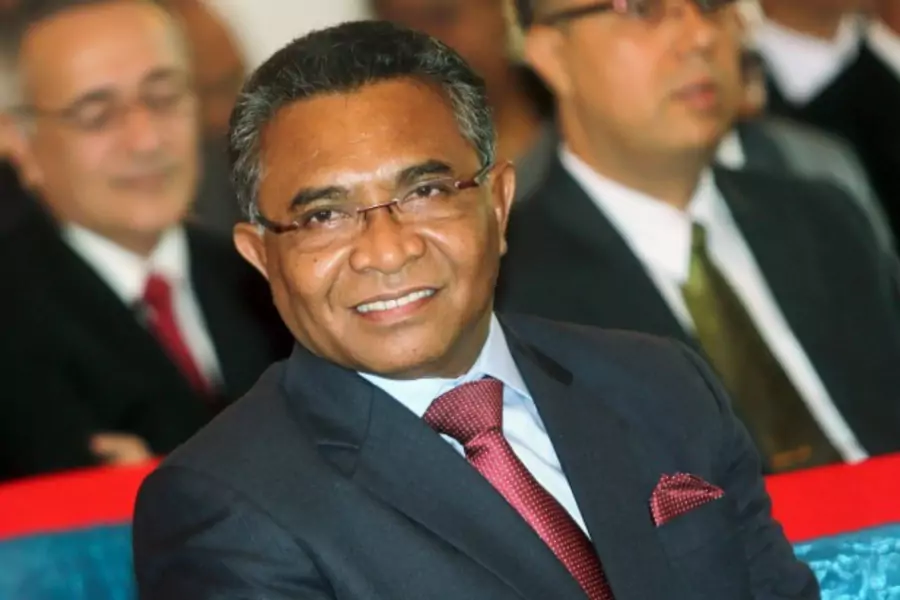More on:
In February, Xanana Gusmao, Timor-Leste’s prime minister and by far its leading national figure, stepped down. In a decision that would be unthinkable in many countries, he gave way to allow a member of the opposition party, Rui Araujo, to be his successor as prime minister. The new prime minister is from a different generation of Timorese—he is two decades younger than the former guerilla fighter. What’s more, Rui Araujo has won respect from members of all Timorese parties for his previous work as health minister and as a senior advisor to Timor’s Finance Ministry.
The new prime minister, though probably the most popular politician in Timor other than Gusmao, is facing a daunting task. Though praised by many outsiders for enduring years of opposition to a brutal Indonesian occupation and for building a relatively stable democracy since gaining independence in 2002, Timor is today the poorest country in East Asia. Despite earning billions from a share in an offshore petroleum field between Timor and Australia, per capita income in Timor stands at around US$1,100. Worryingly, as much as 70 percent of the working age population is estimated to be either unemployed or underemployed—and this in a country with one of the highest birth rates in Asia at 5.3 births per woman. Many unemployed young men walk the streets of Dili all day and into the night. Since independence, the presence of so many unemployed young men in Timor has, on several occasions, helped spark gang and political violence in Dili and other towns.
Araujo’s most urgent task, then, must be to come up with concrete plans for job creation. The offshore petroleum is expected to run out by the middle of the next decade, though its bounty could be expanded if more of the field is explored. (Timor wisely has established a sovereign wealth fund to hold much of the earnings from petroleum, though some observers have raised concerns that the fund is not being properly managed.) Job creation won’t be easy in geographically isolated Timor, a country that also has a small domestic consumer market. But Araujo could use state funds to promote agriculture, including Timorese coffee, which is already well known to coffee fans. In addition, he could potentially dedicate a greater percentage of state funds to a national job creation program focused on building physical and telecommunications infrastructure, both of which Timor desperately needs. As a younger and more technocratic leader than Gusmao, he could lead a more concerted effort to lure expatriate Timorese in Australia and New Zealand, where Araujo trained as a doctor, to invest in Timor. Timor’s tourism industry would be one viable place for expatriate investment, particularly in middle-range and high-end boutique tourism projects. Despite gorgeous beaches, mountains, and villages, and regular flights to Indonesia and Australia, Timor still attracts few tourists, in part because of the lack of tourist infrastructure. To lure more foreign money into Timor, Araujo will probably have to strengthen the national anticorruption commission, which was established by Gusmao but which has made few inroads into a culture of corruption in politics and business in Timor, which is annually ranked by Transparency International as among the most corrupt countries in Asia.
As a doctor and a former health minister, Araujo also is well prepared to tackle another serious challenge in Timor—the fertility rate. As Voice of America has reported, there are significant cultural and religious barriers in Timor to family planning, yet the high fertility rate makes it very difficult for Timor’s economy to absorb even a fraction of the new entrants into the labor market each year. Without ignoring the country’s religious and cultural identity, the new prime minister can use his position—in which he can literally speak to a significant percentage of the tiny country as he travels around Timor—to advocate for family planning strategies that allow Timor to reduce infant and maternal mortality rates and to foster economic development.
Araujo also needs to build upon the legacy of cross-party cooperation created by Gusmao’s decision to step down. Although Timor has held multiple free elections and has a vibrant climate of speech and free expression, partisanship—some of it violent—often has undermined political cooperation and economic development. Yet Araujo’s rise creates an opportunity for the new prime minister to pick up the mantle left by Xanana and to foster an era of political reconciliation, in which all the major parties focus their energies on goals like job creation, population management, infrastructure building, and other priorities.
More on:
 Online Store
Online Store
